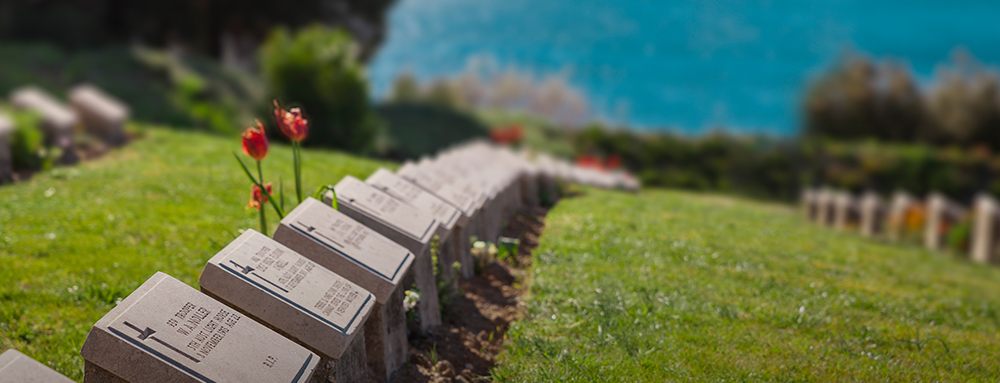This page is for Australians thinking of travelling overseas to commemorate Anzac Day.
Explore this page to learn about:
- the location of services overseas
- staying safe
- looking after your health
- weather conditions
- getting around
- where to get help
The location of services overseas
Check your destination's advice level before deciding to travel. Our advice levels reflect the risks in a destination. Find more information about advice levels.
Anzac Day falls on 25 April each year. Services are held in major cities and at war memorials around the world.
The Department of Veterans’ Affairs (DVA) manages the Anzac Day Services at memorial sites in:
DVA has information on the venue and time for each service, including:
- how to get an attendance pass
- what to do before you leave
- what to expect at the services
- what to take
- security and safety.
Staying safe
Local authorities will manage security and crowd management. There may be security screening at the entry of the memorial sites, including bag searches. Follow the instructions of security personnel. They're there to keep you and others safe.
Exercise a high degree of caution in Türkiye and France due to the threat of terrorist attacks. Attacks could occur at any time.
To protect yourself:
- be aware of your surroundings, especially in public places and around significant dates
- report suspicious activity or items to the police
- check official media channels for new and emerging threats
- take official warnings seriously
- follow the advice of local authorities.
If there's an attack, leave the area immediately if it's safe to do so.
Read more about the risk of terrorism overseas.
Looking after your health
Local health authorities provide limited medical support at the memorial sites. They are equipped for emergencies, not to treat minor ailments. Bring a small first-aid kit and sunscreen, as the first-aid teams don't provide these.
There are few facilities for people with disabilities or restricted mobility. The terrain varies from sealed roads, cobblestone paths and uneven surfaces. You will often have to stand for long periods.
Make sure you bring with you:
- any medical equipment
- medications
- wheelchairs or mobility aids.
Find out whether local facilities will meet your needs. Talk to a travel agent, tour operator or the local tourist authority.
Read more about staying healthy while travelling.
Weather conditions
Services are held outdoors at dawn and later in the day. The weather can change suddenly. You'll be exposed to the elements as there's no permanent shelter. It will be very cold overnight. Rain is possible, particularly in France. The temperature in Türkiye can get very hot during the day. Bring clothing that suits the climate where you're going.
If there's severe weather:
- follow the advice of local authorities
- keep in touch with friends and family
- monitor local media.
Read more about staying safe in severe weather.
Getting around
Gallipoli
The Gallipoli Peninsula is a 5-hour drive from Istanbul. The nearest town is 20km away. There's no public transport to the national park. You should go as part of a guided bus tour.
Winter storms and heavy traffic seriously affect many coastal roads around Gallipoli. This includes roads in the Gallipoli Peninsula Peace Park. Traffic restrictions may apply to the Anzac Cove road. Pedestrian access isn't typically affected.
Accessibility considerations
The Anzac Commemorative Site is a 1km walk from the parking area. There are shuttle services available if you have accessibility needs. Pre-register your need for the shuttle service, as places are limited.
You can expect to walk up to 10km on paved and dirt roads on the peninsula, including up steep hills. If you have an accessibility need, alert staff when you arrive at the Site.
Villers-Bretonneux
The Australian National Memorial is around 90 minutes north of Paris. You can access the service by private vehicle or on foot from adjacent villages. Or you can go by tour coach.
To stay safe
- Be prepared for a range of weather conditions.
- Obey safety signs and directions.
- Don't wander off marked roads and tracks.
- Don't separate from your tour group.
Where to get help
Depending on your needs, your best option may be to contact your
- family
- friends
- airline
- travel agent
- tour operator
- employer
- travel insurer.
Your travel insurer should have a 24-hour emergency number.
Read the Consular Services Charter to understand how the Australian Government can and can't help you overseas.
Subscribe to our travel advice. We'll update you when things change. Also follow us on X, Instagram and Facebook.
Read more
- Read the travel advice for your destination.
- See our advice for taking care of your health.
- Learn more about staying safe and avoiding danger.
See also
- Learn more about Overseas commemorations.
- Find an embassy or consulate overseas.

